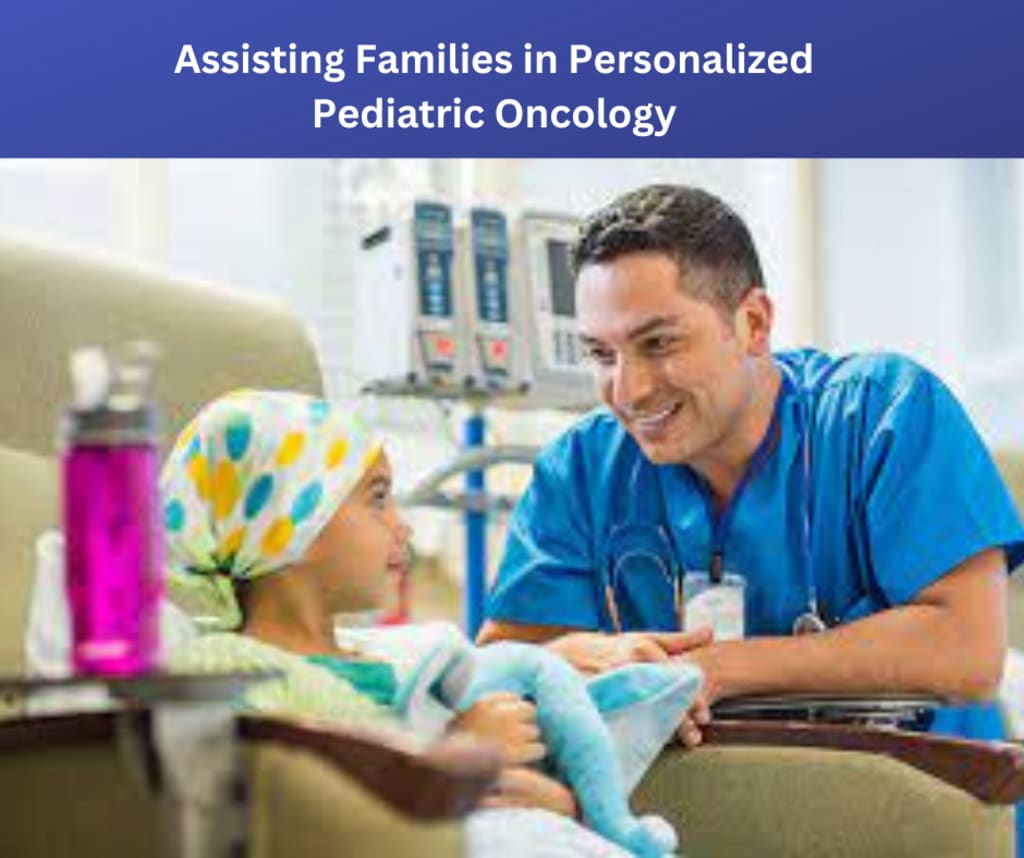
A pediatric cancer diagnosis is a significant life-changing event that poses significant difficulties for the affected kid and their family. Childhood cancer can come with enormous emotional, psychological, and financial hardships. A parallel focus on offering complete support to the families is equally crucial as medical developments continue to open the door for tailored pediatric oncology therapies. A holistic approach to care recognizes the interconnectedness of all facets of a child's life, and that meeting the patient's and their family's physical, emotional, and social needs can enhance overall wellbeing and treatment results. In this article, we explore the significance of a holistic approach to pediatric oncology and the various support systems that can be put in place to provide families with the much-needed strength during this challenging journey. Find experienced and compassionate pediatric oncologists in Bangalore, offering specialized care for children with cancer
The Impact of Pediatric Cancer on Families
When a child is diagnosed with cancer, it shocks the entire family, upsetting the balance of their existence. A variety of feelings, such as fear, grief, remorse, and helplessness, frequently sweep over parents. As parents concentrate on the needs of the sick kid, siblings may feel ignored as well. Grandparents, relatives, and friends who are all emotionally and physically concerned in the child's well-being are also impacted by cancer, in addition to the immediate family.
Family ties may be strained by the rigors of therapy, frequent hospital visits, and possible relocation for specialist care. It becomes challenging to balance the requirements of the sick child with those of other family members. Stress on both an emotional and financial level can compound, making one feel vulnerable and alone.
A Holistic Approach to Care
A family-centered, holistic approach to pediatric oncology care understands the need of treating all aspects of a family's life in order to enhance the overall health and wellbeing of the child and their loved ones. It takes into account the family's emotional, social, and practical needs in addition to the physical aspects of treatment. A successful and encouraging holistic care program depends on a number of important factors.
Multidisciplinary Care Teams
A multidisciplinary team of healthcare professionals, including oncologists, nurses, social workers, psychologists, dietitians, and child life specialists, are involved in the treatment of pediatric cancer. The effective handling of the child's care is ensured through a collaborative and integrated approach. This team helps the family by offering resources and emotional support in addition to medical care.
Psychological Support
Pediatric cancer has a profound emotional impact on both the kid and their family members. People who need psychological support can get it via counseling, therapy, or support groups to deal with their fear, worry, and sadness. Families can more successfully handle the difficulties they encounter by offering a safe area for them to express their emotions and worries.
Education and Communication
In the treatment of children with cancer, effective communication is essential. The treatment strategy, potential side effects, and long-term repercussions should all be clearly and compassionately explained by medical specialists. By arming families with knowledge, we can help them make wise decisions and take an active role in the care of the child.
Supportive Services
Families that are struggling with the additional stress of medical bills and irregular work schedules may find relief from their burdens by having access to supportive services including social work, financial aid, and housing support. These services aid in ensuring that the child's welfare rather than practical difficulties remain the primary concern.
Addressing Siblings' Needs
Siblings of children with cancer often feel neglected or misunderstood. Special attention should be given to their emotional needs, and support groups can provide them with a platform to share their experiences and connect with others in similar situations.
Palliative Care and End-of-life Support
Palliative care aims to improve the child's quality of life and offer emotional support to the family when a cure is not possible. Additionally crucial to assisting families in coping with the loss of a child is bereavement support.
School and Community Involvement
For kids with cancer, maintaining a feeling of normalcy is essential. A child's educational needs and sense of belonging can be actively supported by schools and communities.
Integrating Complementary Therapies
Yoga, music therapy, art therapy, and other complementary therapies can all help kids and their families relax and relieve stress.
The Role of Research and Advocacy
Research and advocacy initiatives play a significant role in the development of pediatric oncology therapies and support networks. Medical research focuses on both creating safer, more effective treatments as well as on comprehending the emotional effects of cancer on families. Researchers and advocates who listen to the perspectives of patients and their families can spot unmet needs and seek to put in place comprehensive support systems.
Recent years have seen greater financing for research and support services as a result of growing awareness of and activism for pediatric cancer. Collaborations between healthcare facilities, nonprofit groups, and governmental organizations have also helped increase funding and provide better care for families dealing with pediatric cancer.
Conclusion
The path of a child with cancer is complicated and transformative for the entire family. For the best results, care must be provided holistically, taking into account the child's and their loved ones' physical, emotional, and social needs. Families can traverse this difficult experience with more resiliency and hope if a multidisciplinary care team, psychiatric assistance, education, and numerous supportive services are made available. Additionally, research and advocacy play a crucial role in the ongoing development of tailored pediatric oncology treatments and the general wellbeing of families dealing with childhood cancer. Together, we can create a compassionate and encouraging environment that gives families the confidence and fortitude they need to confront the challenges of pediatric cancer. The best hospital in Bangalore is renowned for its state-of-the-art facilities, world-class medical expertise, and compassionate patient care. It consistently ranks among the top healthcare institutions in the country.





Comments
There are no comments for this story
Be the first to respond and start the conversation.